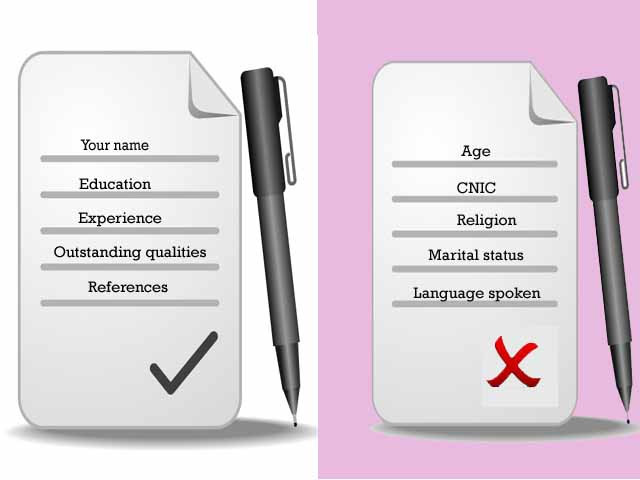Having recently joined the ranks of the unemployed, I can now relate to their dilemma of finding the perfect job. Amongst the many issues that one has to face, I find myself struggling with interviewers’ questions. This truly makes me wish for a general regulation of the entire process.
For instance, one of the items listed on my CV is a project I completed for the United States Holocaust Memorial Museum , describing the personal stories and experiences of Holocaust victims and survivors. While I am fully prepared to discuss this project and the role I played in it, what I was not prepared for during my last interview was the interviewer first asking me if I was Muslim and, on receiving an answer in the affirmative, wanting to know how my conscience allowed me to take on this project and complete it.
I declined to comment on this and took my leave right there and then. This is just an example to illustrate the lines that need to be drawn between what can and cannot be asked during the interview process, and what interviewers need to stay clear of.
Job interviews should focus solely on the professional information listed in the candidate’s CV.
Personal questions regarding one’s age or marital status does not usually affect one’s ability to perform the job at hand. If, say I apply for a teaching position at a school, where a commitment of at least one academic year is required, one would understand if my marriage plans were discussed to evaluate whether or not there was a chance that I would run off before that time.
However, in all other circumstances, there is no need to ask whether or not I am married, or plan to have children in the near future.
There are several other subjects that should be considered taboo during an interview. Generally, even questions regarding one’s family background and place of origin should also be off-limits.
But again, there are exceptions in which your place of origin or the language you speak may affect your ability to carry out the job. With my work as an Urdu translator, I am often asked what my first language is by prospective employers. Because this is a pre-requisite for the position, I entertain and answer the question.
Otherwise, I simply refuse to answer.
It may cost me that position, but is it really worth working for an organization in which the decision to hire me depends on whether or not I speak some XYZ-regional language?
In First World countries, regulation exists to prevent personal questions being asked by interviewers, and while it is too much to expect that such regulations will be developed and enforced in Pakistan, the least interviewers should do is abstain from such questions.
If they do not, candidates should avoid answering them. A subtle way of doing this would be to inquire about the intent behind the question itself, and try to address this intent rather than directly answering the question.
Instead of, for example, directly stating your marital status or how many children you may have, assure the interviewer that your personal responsibilities do not have any bearing on your salary expectations, or that they will not interfere with your commitment to the job, as the case may be.
One handy CV tip that all job seekers are advised to follow is never to mention any personal information on this piece of paper. Such information includes, but is not limited to, age and date of birth, CNIC numbers, religion, marital status, languages spoken and understood and fathers name.
Candidates should not give potential employers any chance to base their hiring decisions on anything except purely professional reasons.
Read more by Sufia here, or follow her on Twitter @sufiazamir
Job interviews and inappropriate questions
What I was not prepared for during my last interview was the interviewer first asking me if I was Muslim.



COMMENTS
Comments are moderated and generally will be posted if they are on-topic and not abusive.
For more information, please see our Comments FAQ